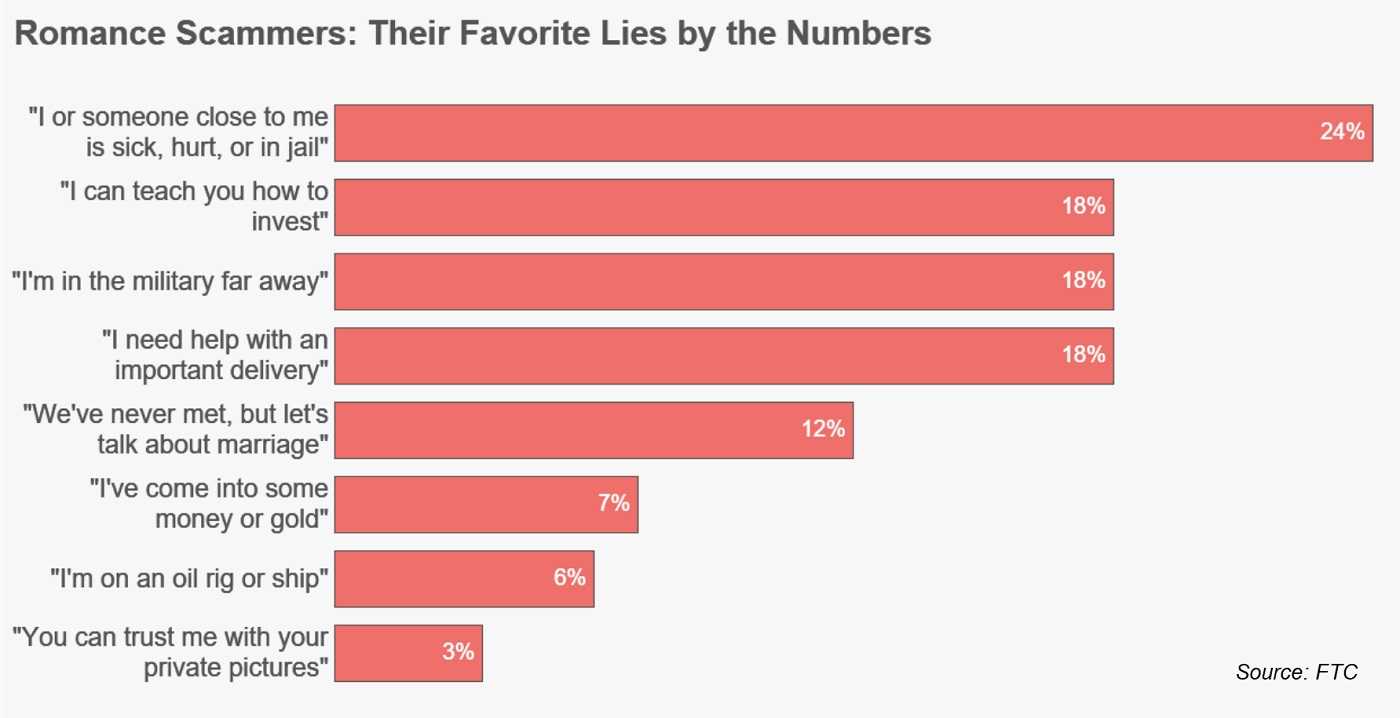Valentine’s Day has come and gone, but love never leaves the air. So many are looking for love, or searching for a dinner or movie companion to combat lurking loneliness. It's always a good time to take a look at the various online dating scams that are always searching for your love and to provide a few tips on detecting them as well as others that may come up. There is no need to despair. There are signs to look for and ways to avoid being caught out by these scams and others.
Lonely patriots – Someone claiming to be a soldier serving overseas contacts a potential date, starts an online relationship, and eventually pops that question and asks for money. The funds are supposedly to buy something that they need or that would make them very happy such as computers, international cell phones, or other items to stay in touch with family and friends. Sometimes they use actual service members’ names and ranks. Other times they use information they find about the deceased.
The black heart blackmail – In this one, an online dating contact put on the charm and convinces victims to send explicit photos or racy text messages. Then, the victim is blackmailed into sending money to the thief. Alternately, the thief may claim to be a law enforcement officer and threaten the victim with jail if a fine for breaking an interstate law is not paid.
The lonely-hearts club – There are book clubs and, in this case, dating clubs. A criminal creates a phony dating club that requires a monthly membership fee. Fake photos and biographies are sent out regularly to lonely hearts to keep them going back for more and therefore are tricked into paying the monthly fees.

Chatty chatbot – This used to be particularly popular on Tinder, but it’s non-discriminating now. When a match is made and a chat session opens up between them. The chatbots go to town with the charming conversation with the victims The ultimate goal is to get malware onto the device or con the victim out of money in some way.
One that is surely making an entrance will involve AI (artificial intelligence). The cyber scams are already coming hard and fast, but when it comes to love scams, there is no doubt, AI will not be left alone on date night.
There are signs to look for and ways to avoid being caught out by these scams and others.
Quick to share: If someone offers up his or her personal information very quickly or without knowing you at all, it most likely is a scammer. Some people truly are “open books” and give up private details quickly, but most real people do like to get to know the other person first. And no matter how willing a person is to share, it’s really wise to take time first to get to know one another for the security of both parties.
Keep the mystery alive: Many like to post on their social media profiles that they are looking for love. However, that could attract scammers who peruse statuses and profiles for exactly that information and then send all kinds of spammy love letters. It’s better not to provide that information on those profiles.

That’s not what you said last time-Be wary of those who chop their stories up or change them. If it is a true story, there is no need to do this. It’s easier to remember the story when it’s true.
It’s the thought that should count: Don’t give people you meet online and have not met in person money; no matter how desperate they seem or how badly they tug on your heartstrings. If they are scammers, they are likely good actors too.
When you know, you know: Trust your instincts. If you suspect something odd, pull away. If you think information and photos that you’re getting of the other person are too good to be true, they probably are.
In a flash: If the typing speed of the person on the other end of a chat conversation is super-fast to a point it’s tough to believe it’s a person, it could very well be a chatbot. Some people type fast, but robots type faster.
Be aware of responses to questions that don’t make sense. After all, a chatbot is a robot and if you ask a specific question, it likely won’t have an appropriate response programmed into it. So, go ahead and ask very specific questions and see how they do before giving up your trust or your heart.
And since AI is becoming a thing, always have a way to confirm without a doubt that whomever is on the other end of a chat or phone call is actually a person and the person you think it is. Create a codeword or phrase or ask very specific questions that only that person will know the answer to before providing information or money.
Don't give away your heart or your money without being sure it won't end in heartbreak.